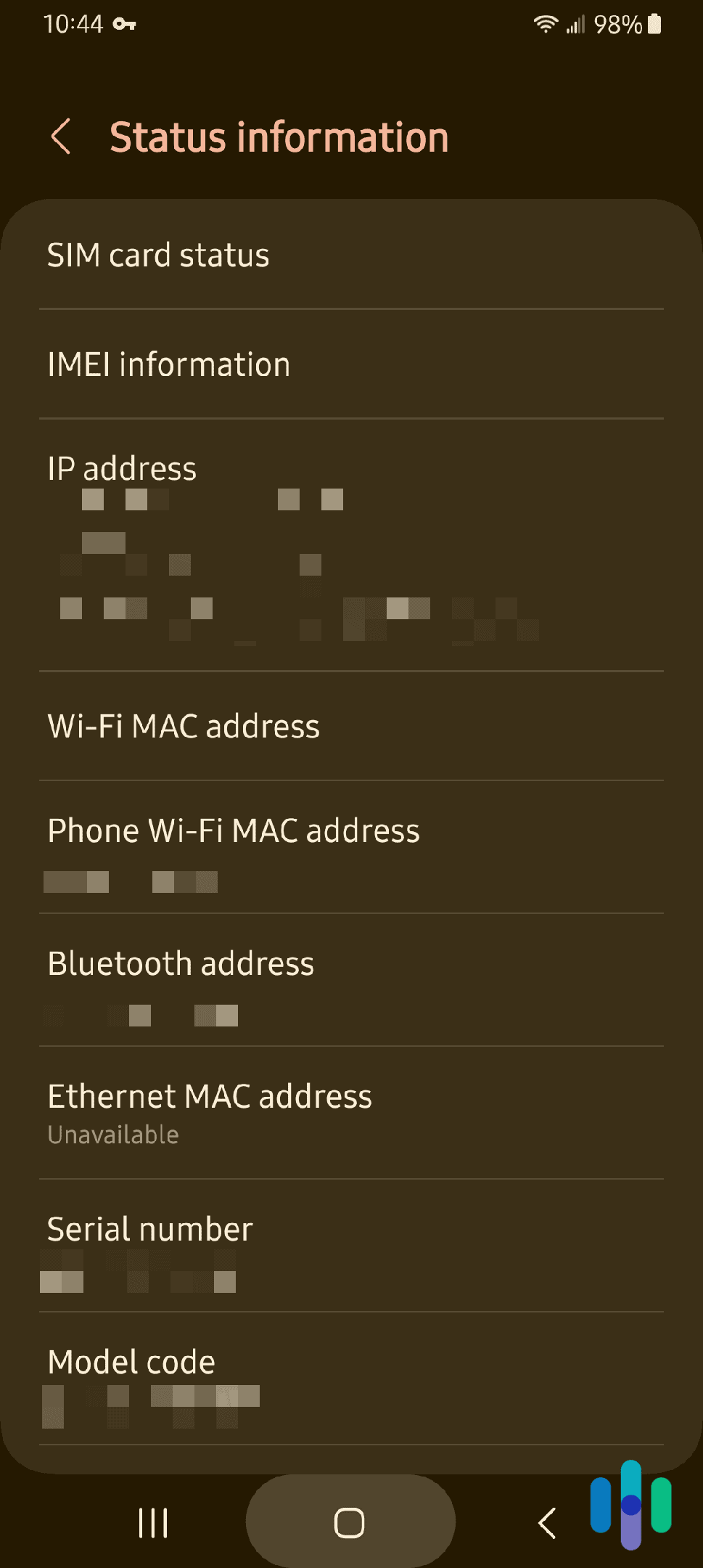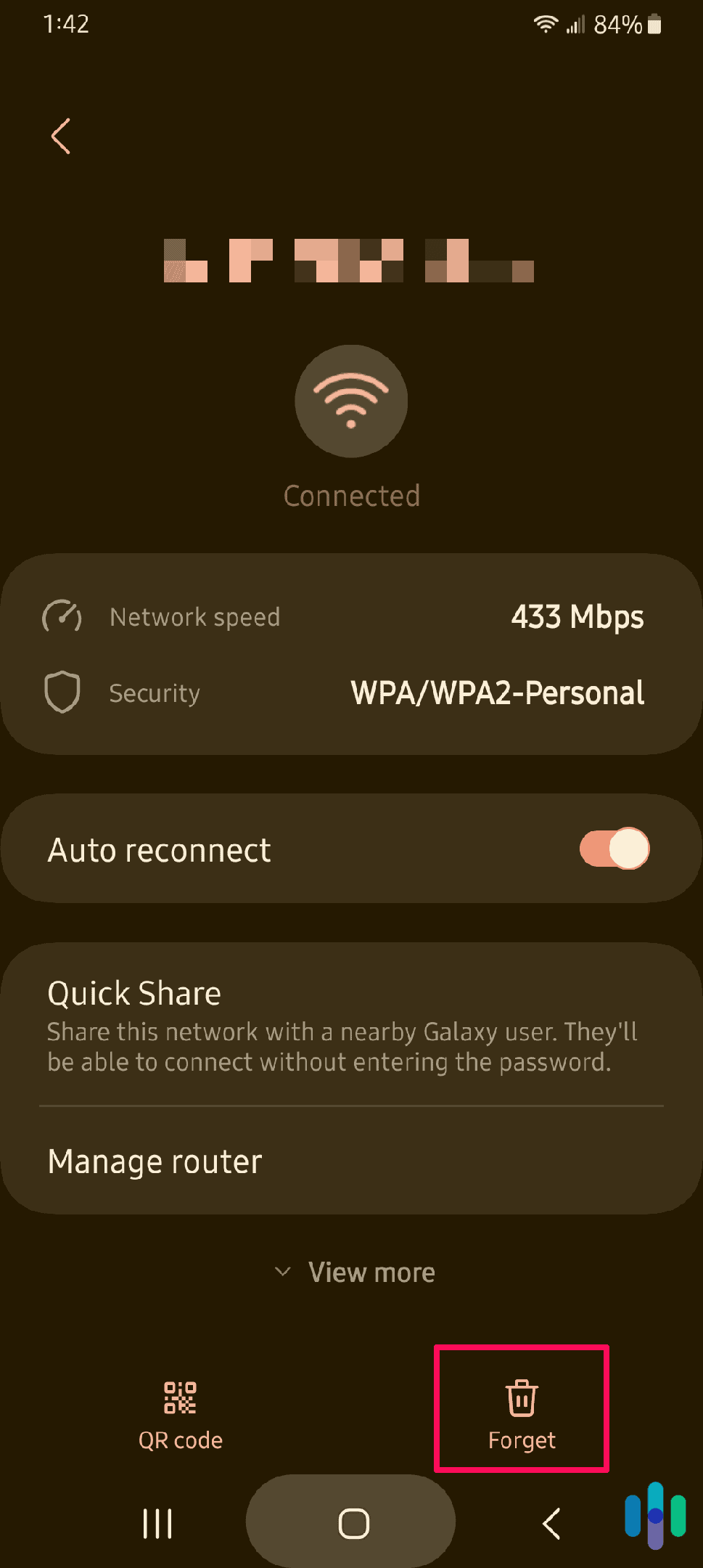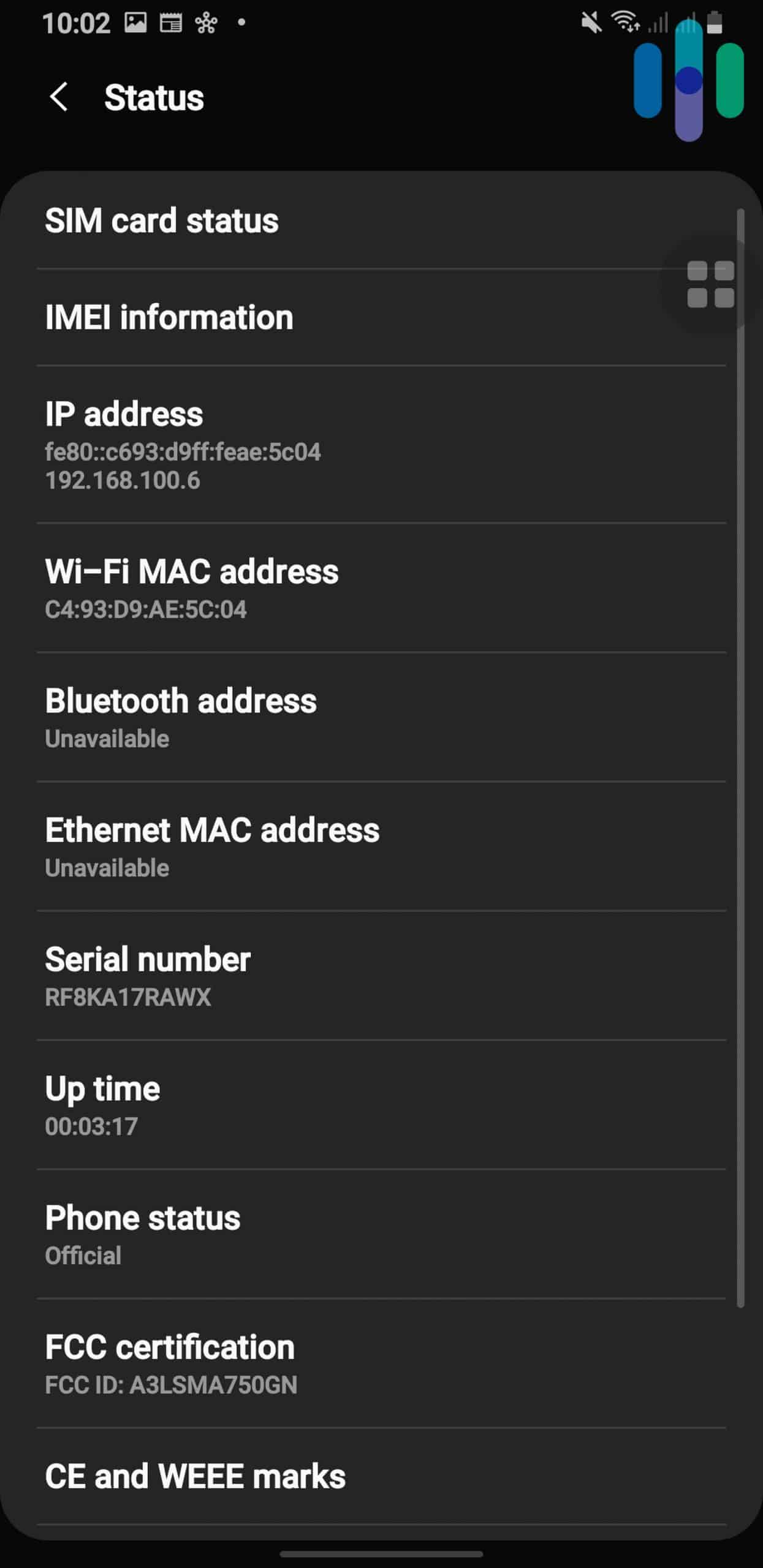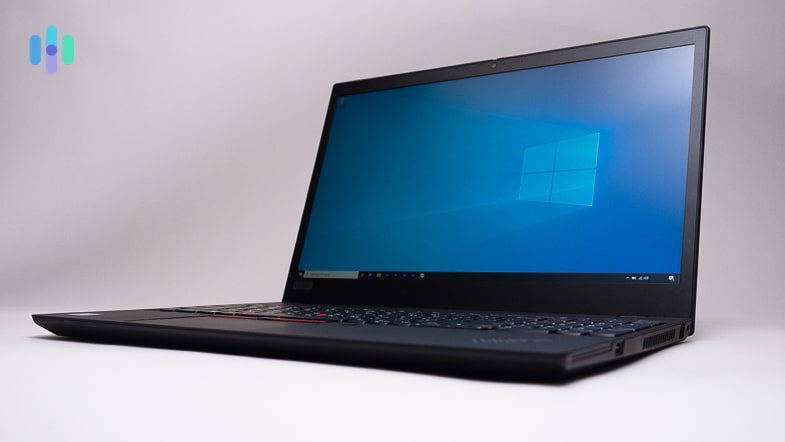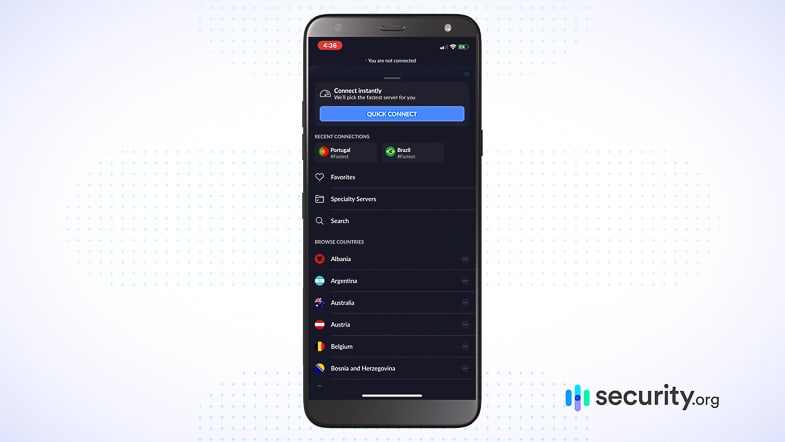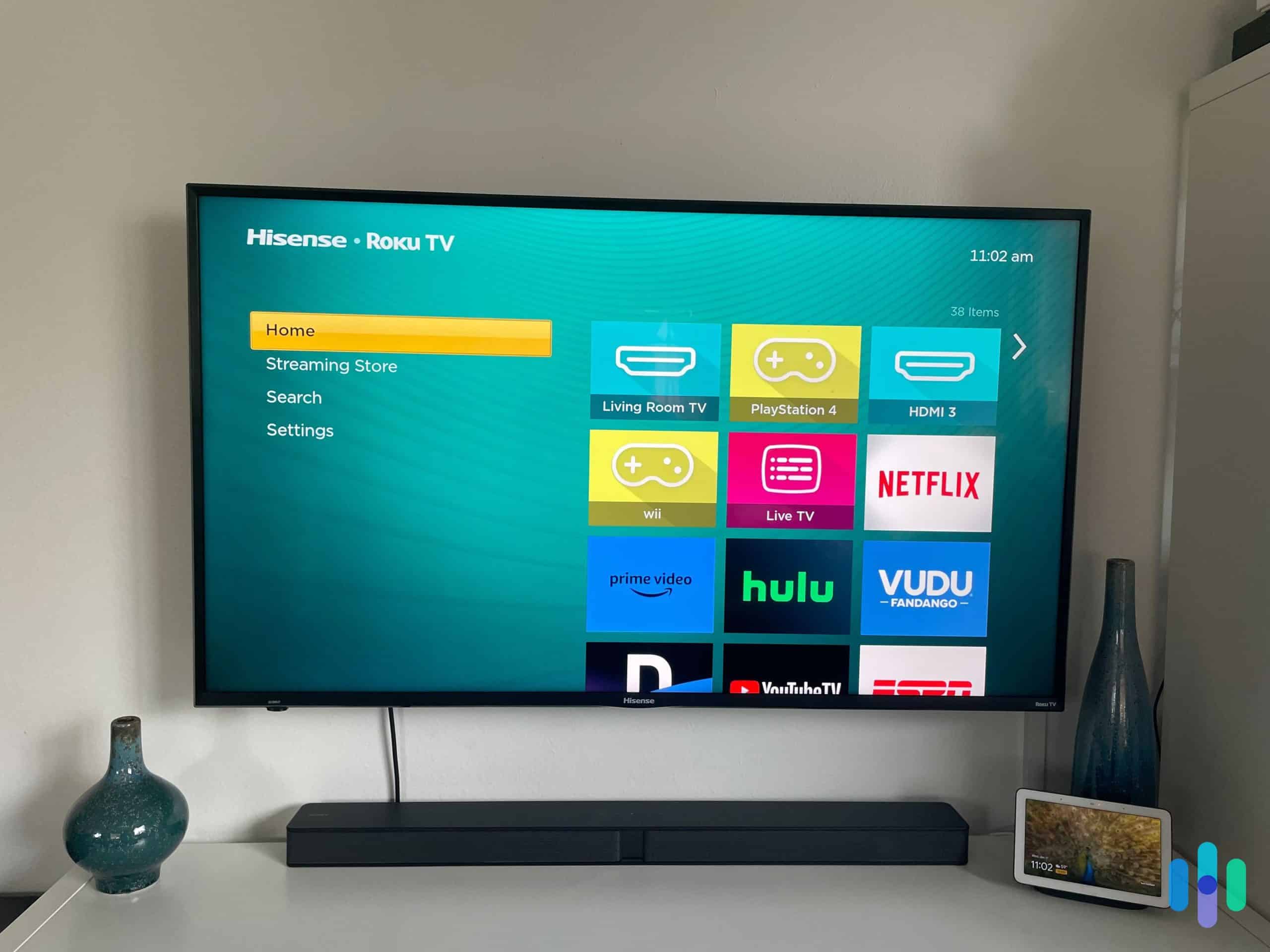You know your IP address is important; we certainly bring it up often enough in our security guides. But why exactly is it so important?
If someone manages to get your IP address, they can do a lot of damage to your life, from sending you spam to attacking your computer. In this guide, we’ll show you all the ways that someone could use your IP address. In addition, we’ll give you practical advice on how to protect this valuable piece of information.
Your private information
My IP Address
IP:
Loading…
Status:
Unprotected
My IP Information
Internet provider:
Loading…
City:
Loading…
Region/ State:
Loading…
Browser name:
Loading…
Browser version:
Loading…
Device brand:
Loading…
Device type:
Loading…
Latitude:
Loading…
Longitude:
Loading…
Postal code:
Loading…
Overview of How to Protect Your IP Address
Protecting yourself against online threats is non-negotiable. Enter the virtual private network, or VPN. With a VPN, the websites you visit won’t see your real IP address, as the VPN hides it and replaces it with its own IP address. VPNs also encrypt your web traffic for safe browsing. We've tested dozens of VPNs, and below are our top three picks that offer the most protection.



What Can Someone Do With Your IP Address?
Your IP address is a unique identifier that lets your device communicate with the internet. That number gets assigned to a device and is used to identify other devices on a network and share information.
You need an IP address to send and receive data, watch Netflix, or browse Wikipedia entries. Precisely because it’s so very useful, your IP address is a valuable piece of information.
What can someone do with it if they gain access to it? The possibilities range from minor inconveniences to full-on cyberattacks, and perhaps even physical attacks as well.
Digging Deeper: We like the way one Reddit user we came across, v3vv, puts it – “Someone knowing your IP address is actually pretty similar to someone knowing your home address.” And it’s true, it allows strangers to visit your “property” to see what kind of security weaknesses you have. IP addresses don’t directly lead to problems, but they can be used to find holes in your defenses.
>> Read Next: Is Reddit Safe?
- Send you personalized spam: Today’s advertisers use sophisticated tracking techniques embedded in websites and apps. Lately, many advertisers have begun embedding tracking programs in online articles. These trackers record your IP address and send you targeted ads based on your browsing. For example, you might read an article about how to raise bonsai trees. The next thing you know, you’re getting emails from local nurseries.
- Learn your geographic location: An IP address indicates what city you’re in. Once someone knows that, they may also be able to poke around online and find your actual address. Many home invaders keep an eye on social media so they know when homeowners go out of town. If they have IP addresses, it’s usually pretty easy to know which houses to hit, so be sure to secure your home while you’re away.
» Learn More: How To Get A UK IP Address
- Restrict your access to certain services: Online services get this information from your IP address and restrict your access to their services. YouTube TV allows you to see local content only from the city where you live unless you use a YouTube TV VPN to change your YouTube TV location. Netflix knows what country you’re in and provides access only to that country’s library of shows and movies unless you change your Netflix region with a Netflix VPN. Read our guide on how to use a VPN to watch Netflix – it’s easier than you might think.
- Prevent you from playing online games: If you happen to be playing against a game administrator and they’re unhappy when you beat them, they can ban you from the match, which may effectively blacklist your IP address on the entire site.
- Execute a DoS/DDoS attack: With your IP address, someone can execute a DoS (denial of service) attack against you. Essentially, such attacks prevent you from accessing network resources, including a website you visit, online accounts, and even email. The most common method for such attacks is to flood your address with server requests, overloading and disabling your system with traffic. A DDoS (distributed denial of service) attack works similarly, only it involves multiple machines so the traffic is even more intense. That’s why many people use VPNs to block DDoS attacks.
- Discover personal information about you: Identity thieves are constantly on the lookout for PII (personally identifiable information). What is PII? It’s information thieves can use to steal from you directly, or information they can use to impersonate you. This can include items like your Social Security number, phone number, mailing address, and birthdate, all valuable information for identity thieves. Your IP address isn’t PII, and a thief can’t use it to get PII directly. However, if a hacker knows your IP address, they can track down your ISP. They could then use a phishing attack to try and convince the ISP to turn over whatever PII it has on you. One sure way to prevent identity theft is to buy one of the best identity theft services.
- Frame you for crimes: Cybercriminals can route their illegal activities through your IP address using proxy techniques, routing activity through your address instead of their own. Ultimately, they could frame you for buying drugs, downloading child pornography, or even creating national security threats.
- Sell it on the dark web: Not all thieves are looking to cash in by impersonating you. Some are happy just to steal your IP address and sell it on the dark web. You can protect yourself from this scenario, of course, if you sign up for one of our best identity theft protection with dark web monitoring.
>> You Might Also Like: Learn how to remove your name, remove your phone number, or remove your address from the Internet

- Track your activity: Many employers now monitor remote worker’s productivity through IP tracking. While such practices may not be technically illegal, they’re still an invasion of your privacy.
» Find Out: How To Get A U.S. IP Address
- Sue you for copyright infringement: Copyright enforcement has intensified, with rights holders actively monitoring peer-to-peer networks. Many of them monitor torrenting services, looking for IP addresses associated with downloads of protected music, television shows, and films. Once a law enforcement agency has your IP address, it can go to your ISP and demand the company turn over your name and address; that is, if you didn’t torrent with a VPN using one of the best VPNs for torrenting.
FYI: IP addresses don’t reveal any personal information about you, but they do indicate your general geolocation, usually your city or ZIP code.
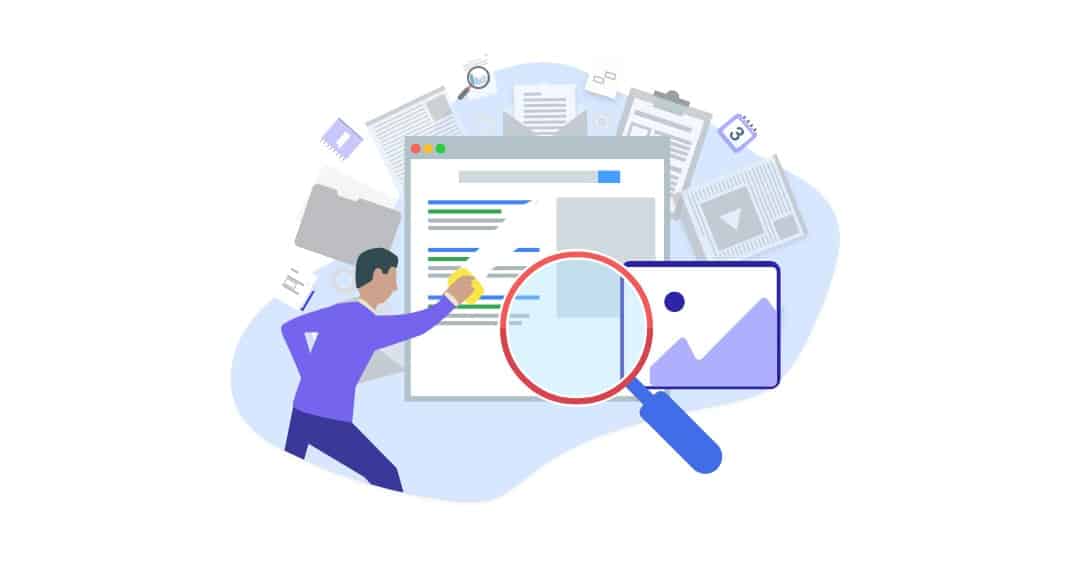
What Is an IP Address?
An IP address (short for internet protocol address) is a numerical label that identifies your device and your device’s general geographic location. The internet uses IP addresses to differentiate among all the different internet websites, devices, and networks, and it couldn’t operate without IP addresses.
Your device has an external (public) IP address and an internal (private) IP address. The external address refers to your home or business network and is assigned by your ISP. Essentially, it identifies your router. Internal addresses identify specific devices, differentiating them from the others in your home.1
» Further Reading: IP Addresses – Static vs Dynamic
If you check your device settings, you may also notice that each of your devices has two IP addresses: an IPv4 address and an IPv6 address. IPv4 is still the address most of the internet uses. However, with the exhaustion of IPv4 addresses becoming a concern, IPv6 was introduced to offer a larger address space using a 128-bit system.
Pro Tip: We recommend using identity theft protection services to keep your personal information secure. Services, like Aura combine identity monitoring with device protection to hide your online activities and personal data. Check out our Aura review to learn more.
How Can I See My Own IP Address?
At any time, of course, you can find the IP address of the device you’re using, like finding your printer’s IP address. How you do this will depend on the specific type of device you’re using.
Windows
To find your IP address on a Windows device:
- Right-click on the Windows icon.
- Choose Network and Internet.
- Select Wi-Fi or Ethernet, depending on which you use.
- Click Network in the center column.
- Your address will be the IPv4 numbers.
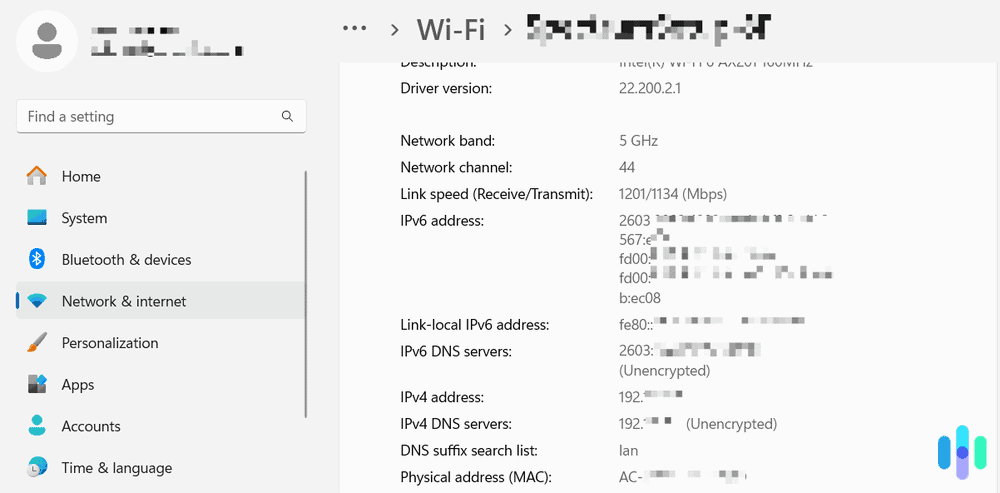
Mac
If you’re looking for your IP address on a Mac:
- Pull down the Apple Menu.
- Select System Settings…
- In the View menu, choose Network.
- In the right column, select Wi-Fi or Ethernet.
- If you’re using Ethernet, your IP address will appear in the middle of the page.
- If you’re using Wi-Fi, click on Details…
- You’ll see your address listed in the pop-up box.
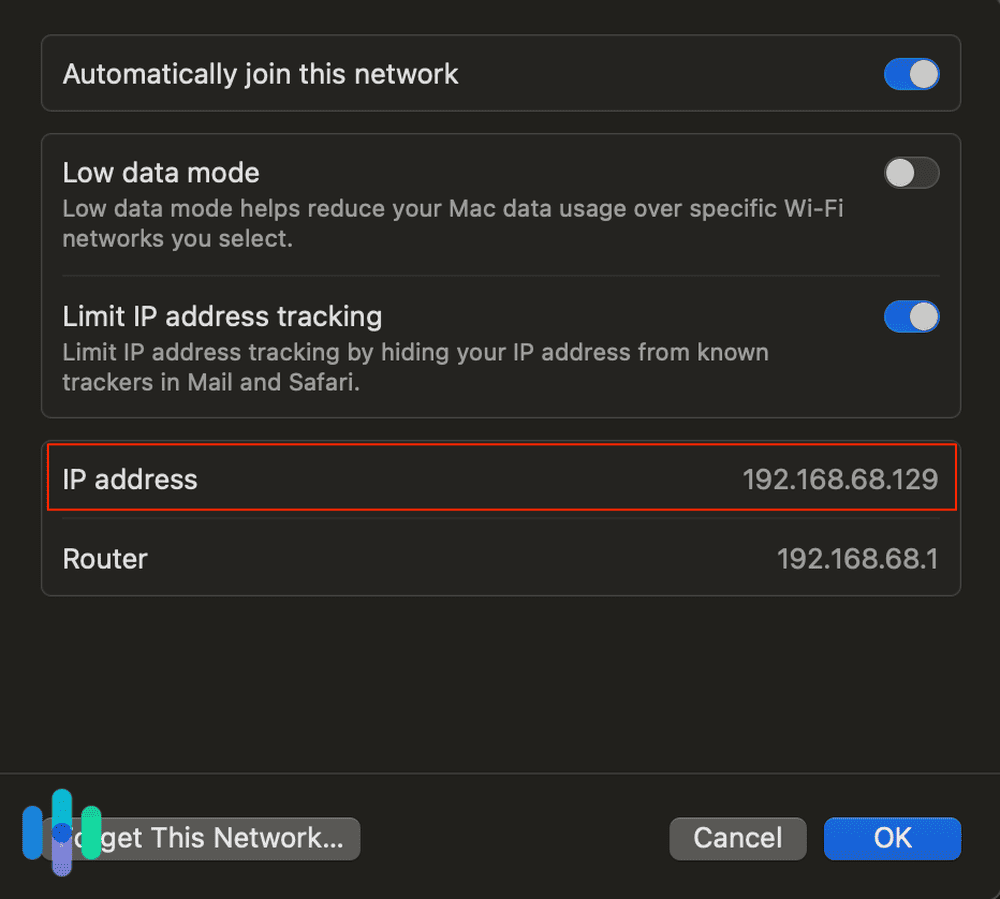
Android
You can find your IP addresses on an Android device by doing the following:
- Navigate to your Settings menu.
- Choose About.
- Select Status.
- You should see your IP address listed.
IP Address on Android
iPhone
To find your IP address on an iPhone:
- On the home screen, open the Settings app.
- Select Wi-Fi.
- Choose the network you’re connected to.
- You will see your IP Address listed about halfway down in the IPV4 Address section.
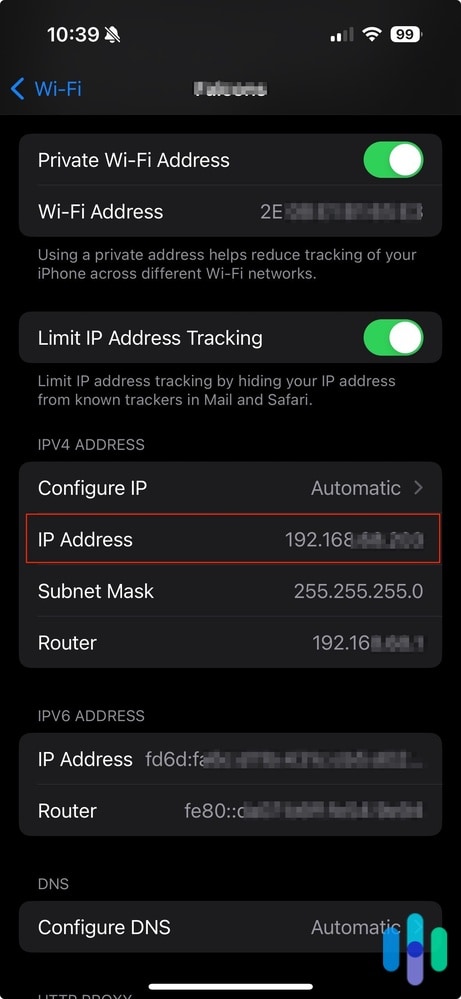
How Does Someone Get Your IP Address?
Unfortunately, your IP address is more exposed than you might think. Because it isn’t considered PII, most companies and services don’t take any extra precautions to conceal it. As a result, someone can get your IP address from a number of sources, including:
- Your email: Some email servers list your IP address in the email heading. If you’re concerned about this, look for email servers that don’t, such as Gmail.
- Torrenting files: When you torrent, your IP address is visible in the peers list. Using a VPN for torrenting can circumvent this problem, though.
- Phishing attacks: Responding to phishing attacks or clicking on bogus links can make your IP address vulnerable to hackers.
- Online ads: A link doesn’t have to be phony for it to collect your IP address. Even legitimate ads may record this information if you click on them. This is known as adware. Unfortunately, this is how many companies do business these days, but there are good methods out there for removing adware.
- Your computer: It may seem obvious, but if you loan your device to someone, even for a minute or two, they can find your IP address in the device settings easily.
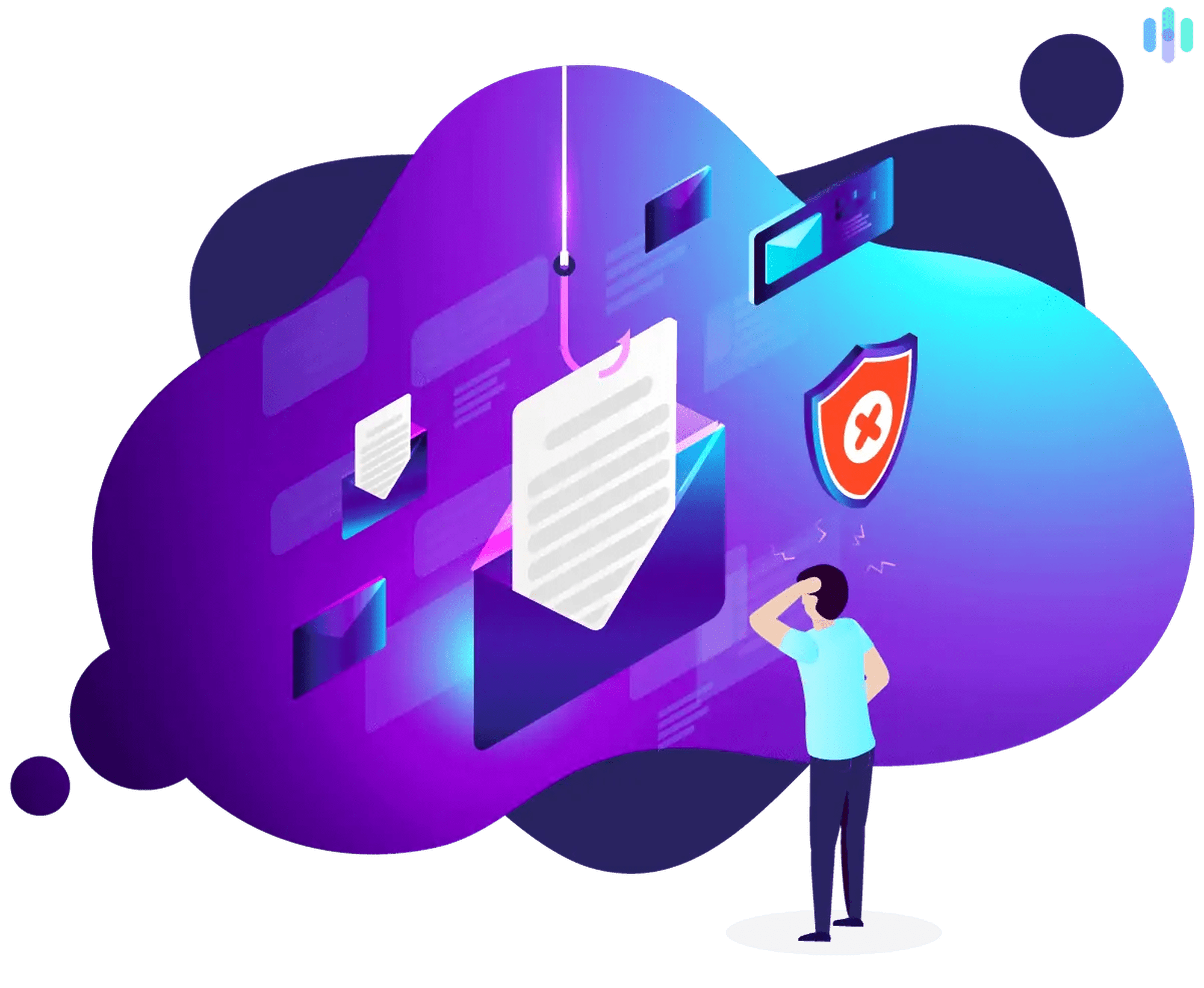
Protecting Your IP Address
There are a number of steps you can take to protect your IP address:
- Update your firewall: Firewalls can’t protect you if you don’t use them properly. Make sure you use secure passwords on your firewall, your router, and all your devices and accounts. You should also make it a habit to update these passwords regularly. Doing so will help prevent anyone from breaching your security.
- Change your privacy settings: Hackers can gain access to your IP address through messaging apps such as Skype. Make sure your messaging apps are set to private, and don’t accept calls or messages from anyone you don’t know.
- Use a VPN: A VPN, or virtual private network, routes your internet activity through one or more servers and assigns you a new IP address. The best VPN services assign you an address that no one can trace back to you.
- Use a proxy server: Like VPNs, proxy servers also hide your IP address when you’re logged in. Unlike VPNs, proxy servers don’t use high-end encryption to shield your online activity. They only hide your IP address.
- Use Tor software: Tor is a web browser that lets you browse the internet anonymously. Like a VPN or proxy server, Tor hides your IP address by routing it through an open-source network of volunteer-operated servers. Tor has faced security challenges in the past, but the project continues to improve its security measures and is still a popular choice for many people.
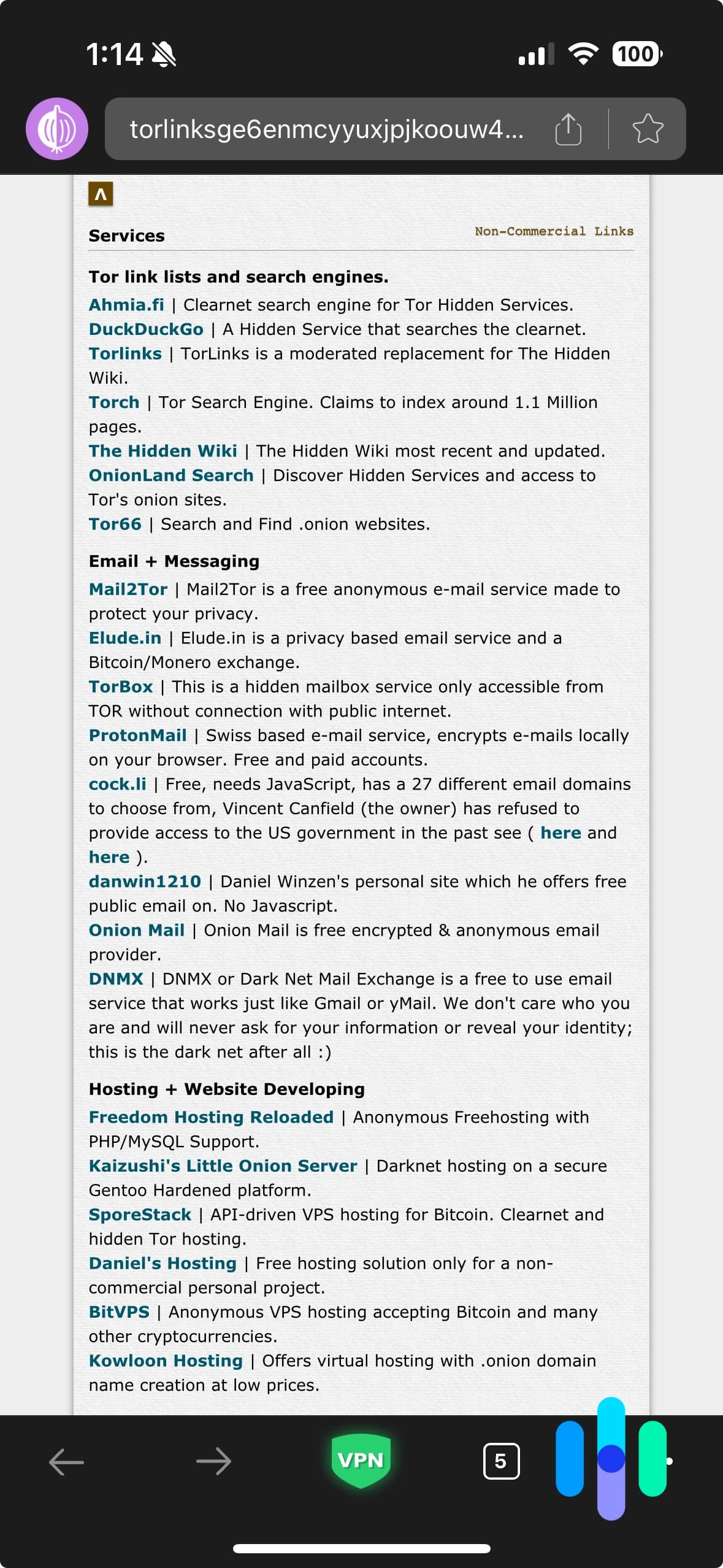
Pro Tip: Were you involved in a data breach? Learn about our favorite data removal services.
- Switch to mobile data: IP addresses aren’t involved in mobile data. Assuming you have the data to spare, switching to mobile data will ensure you don’t have to worry about IP address leaks at all.
- Talk with your ISP: If you’re especially concerned about the security of your IP address, you might want to chat with your ISP. It may be able to suggest some solutions like assigning you a dynamic IP address that changes regularly.
Can Someone Use My IP Address to Control My Computer Remotely?
By itself, an IP address doesn’t allow hackers to control your computer or impersonate you online. An IP address is simply a numeric tag that identifies your device and provides information about your general geolocation.
However, if hackers manage to gain access to your computer through other means, like malware, they can use your IP address to conduct all sorts of shady activities in your name. They might, for instance, make death threats or sell drugs. Of course, this scenario can’t happen if you keep your operating system up to date and use strong antivirus software.
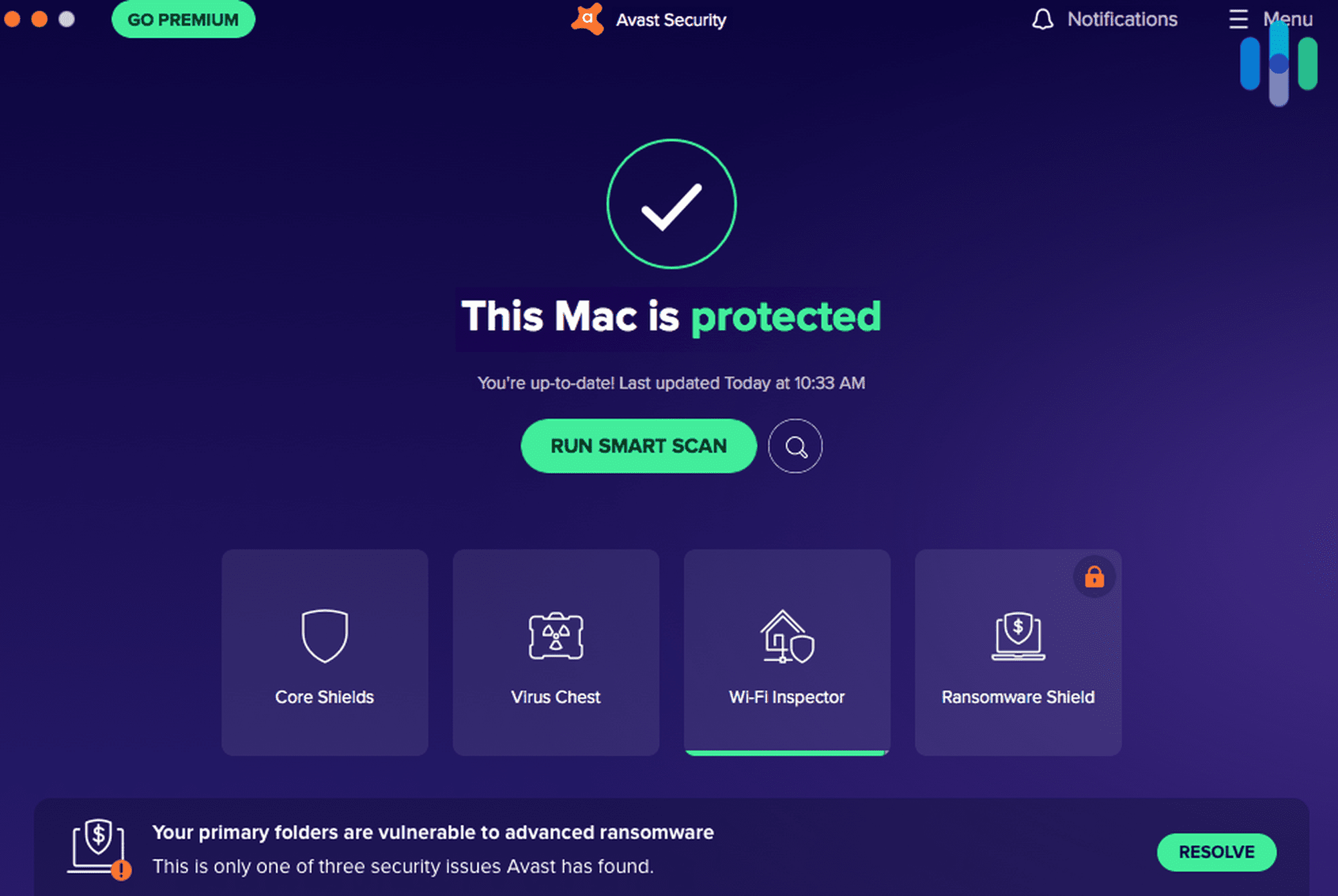
What to Do If Someone Has Your IP Address
You can’t stop someone from using your IP address if they have it; just like you can’t stop someone from using your Social Security number if you lost your Social Security card. However, you can change your IP address any time you want. Assuming you’re working at home, the easiest way to change your address is to unplug your router for five minutes and then plug it back in. Once it starts up, you’ll have a new IP address.
» Learn more: What’s a Static IP Address?
You can also change your IP address on the device itself, and the process is just as easy. Of course, the specific steps will depend on what type of device you’re using.
Windows
To change your address on a Windows device:
- Navigate to Settings
- Select Network & internet.
- Do one of the following:
- For a Wi-Fi network, select Wi-Fi, then Manage known networks. Choose the network that you want to make the changes on.
- For an Ethernet network, select Ethernet, then select the Ethernet network you’re connected to.
- Next to the IP assignment, select Edit.
- Under Edit network IP settings, select Automatic (DHCP) or Manual from the dropdown.
- When you select Automatic (DHCP), the IP address settings and DNS server address setting are set automatically by your router (recommended).
- When you select Manual, you can manually set your IP address settings and DNS server address by entering its details.
- Click Save.
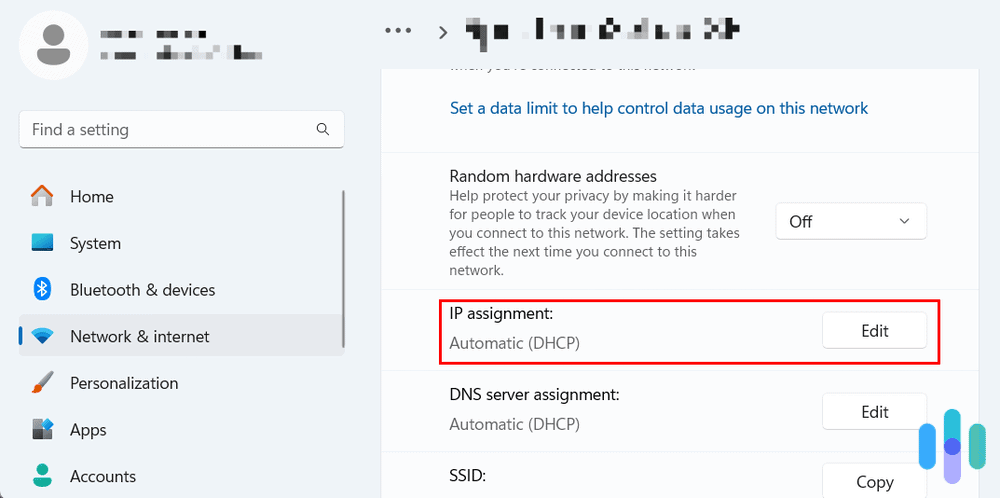
Mac
If you’re changing the address on a Mac:
- Click the Apple icon in the top left corner of your screen.
- Choose System Settings…
- Select Network on the left-hand side.
- Click on ‘Details…’ under the Wi-Fi settings.
- Select ‘TCP/IP’ on the left-hand side.
- In the ‘DHCP lease’ section, click on ‘Renew DHCP Lease’.
- Click Apply.
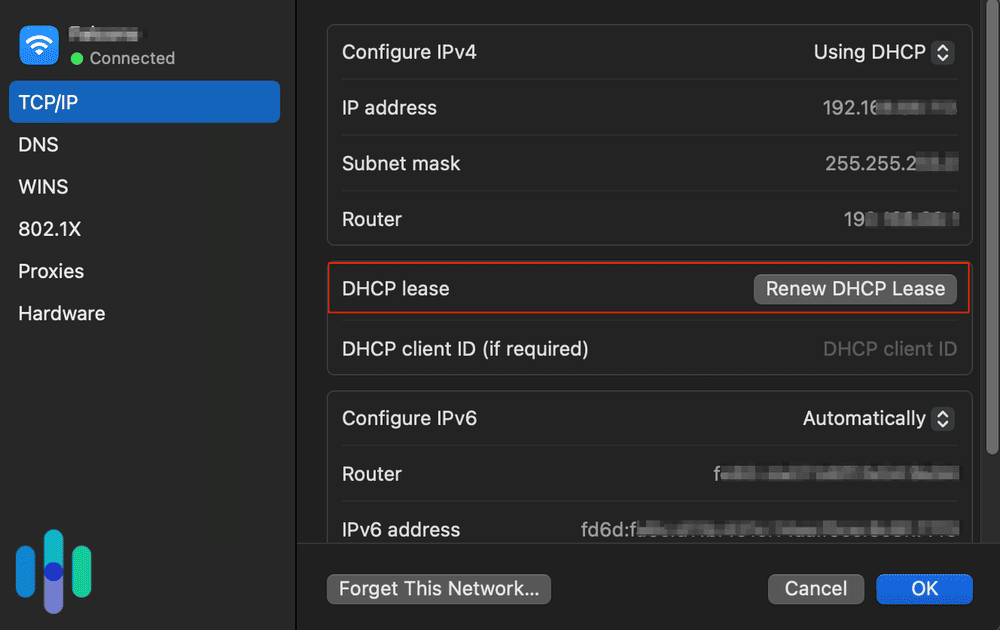
Android
To change your address on an Android device:
- Navigate to Settings.
- Choose Connections.
- Choose Wi-Fi.
- Select the network you’re using.
- Choose Forget.
- Log on to the network again, and you’ll have a new address.
Choose Forget under network settings to change IP address on Android
iPhone
To change your IP address on an iPhone:
- Open the Settings App.
- Choose Wi-Fi.
- Select the Network you’re using currently.
- Under the ‘IPv4 address’ section, select Configure IP.
- Click Manual to manually update your information.
- Enter your IP address.
- Save your changes.
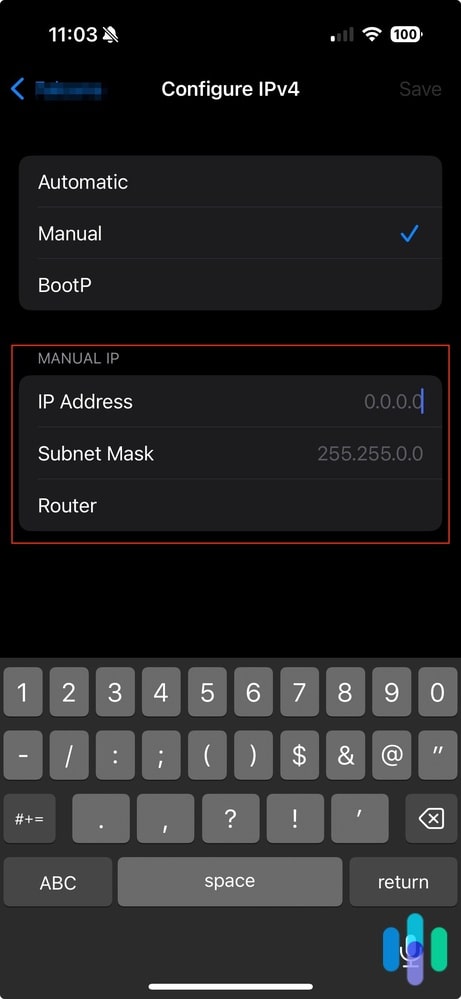
Did You Know: If you suspect someone has your IP address, this is what we recommend you do. Go to your device’s settings and change the IP address, or restart your router for an instant refresh.
Recap
What can someone do with your IP address? They can cause multiple problems, from filling your inbox with spam to conducting illegal activities in your name.
Luckily, there are means of protecting yourself, such as antivirus software and VPNs. Of course, if all else fails, you can always just change your IP address. Whatever option you choose, a secure device means keeping your address protected.
FAQ
We’re not done just yet. As a bonus, we’ve taken the time to answer some of your most frequently asked questions about what someone can do with your IP address.
-
Should I be worried if someone has my IP address?
No, you shouldn’t worry if someone has your IP address. If someone has your IP address, they could send you spam or restrict your access to certain services. In extreme cases, a hacker might be able to impersonate you.
However, all you need to do to fix the problem is change your IP address. You can do this easily in the settings of your device, or you can restart your router.
-
What information can someone get with my IP address?
The only direct information someone can get with your IP address is your general geographic location, usually your city or postal code. If they have additional information about you, such as your birthdate or Social Security number, a hacker might be able to steal your identity or impersonate you online. And, of course, law enforcement can track you through your IP address by contacting your ISP. An IP address by itself, though, doesn’t give anyone access to your personal information automatically.
-
Can someone find me through my IP address?
Using your IP address, someone can identify what city or geographic region you’re in. However, without additional information, no one can find you.
-
What do I do if someone has my IP address?
If you suspect someone has your IP address, the easiest solution is simply to change your IP address. You can do this by shutting down your router for five minutes and restarting it. Once it restarts, it will assign all your devices completely new addresses.
You can also change your address by going into the settings of each device and refreshing the IP address. In addition, you can use a VPN service. A VPN routes your internet activity through a server and assigns you a new IP address that in many cases can’t be traced back to you.
-
How do I know if my IP address has been hacked?
A few signs to look for if your IP address has been hacked include odd network activity, performance issues, firewall and antivirus notifications, unauthorized logins and activity, and unexpected connections. You might also notice unusual emails sent from your accounts or unexplained data usage spikes on your network.




